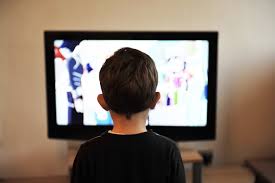Managing Children’s Screen Time: Creating a Balance

Sichuun’s introduction of super high speed Internet to the region means families can do a lot more with their connectivity. It also creates a stronger need to understand and potentially manage the amount of time people spend in front of a screen, especially younger children. This can be especially challenging given the current pandemic, and this article explores a few screen-related considerations and provides additional resources for parents.
Screen Time: A Definition
First off, let's define what we mean by “screen time”. This refers to time in front of a television, gaming console, laptop or desktop computer, tablet, smartphone or even wearable technology. Studies have shown that children that have too much screen time are at risk for becoming sleep-deprived, overweight, less school-ready, less attentive, and less able to self-soothe. They also can exhibit lower scores of self-esteem and self-worth, poor eating habits, decreased school performance and increased mental health issues. The Canadian Paediatric Society offers the following recommendations:
| Age | Maximum Screen Time |
|---|---|
| Under 2 years old | Not recommended |
| 2 to 5 years old | < 1 hour / day |
| 5+ years old | < 2 hours / day |
So how do I create healthy screen habits at home?
Here are a number of aspects for parents to consider around balancing screen time:
- Start Today. Its best to establish screen time limits and habits as early as possible, before any strong (and potentially negative) patterns are developed.
- Communicate. Ensure that everyone in your family understands and shares the same understanding of acceptable limits and content.
- Lead by Example: Be a good role model with your own screen time- limit overuse.
- Manage Timing: Turn off screens during all meal times, at least 1 hour before bed and any background screens when nobody is watching. Ensure kids take frequent breaks from screen time and avoid long periods of sitting. If kids have their own devices, make sure to obtain / set / manage passwords to control access.
- Select Appropriate Content: Must be suitable for their age and maturity level, favoring programs and apps that are educational / active / social over basic entertainment wherever possible.
- Be Engaged: Consider co-play / co-view with your kids (playing video games & using apps with a parent or adult) when possible. Younger children learn better from media when they share the experience with an adult.
- Make a Plan: Consider developing a family media plan to guide when, how and where screens can and should be used.
As we can see, there is no single answer when it comes to developing more healthy screen habits.
But what about the pandemic?
Many parents are juggling children at home and work or community obligations during the current pandemic, which means screen-time can be much more challenging to manage. The impact of social distancing further exacerbates this situation… parents and children trying to maintain a 6 foot distance from others isn’t intuitive for play and creates issues on it’s own. In these situations, it is of particular importance to monitor behavioral changes. There are a number of signs of problematic screen use that may include interference with other activities (sleep, school, offline play time, face-to-face interactions, etc.) and demonstration of negative emotions after screen time (anger, sadness, withdrawal, fear, stress, nervousness, etc.). In addition, they may also have increased emotional outbursts and/or lose interest in hobbies and other activities they used to enjoy. See your child’s doctor if you have any concerns about physical or mental health. Although there is much discussion around screen time and the negative implications, high speed internet provides a huge opportunity for education, entertainment and even socialisation. We hope this article and the additional resources below help you in finding the right balance for your family. Additional Resources: Canadian Paediatric Society: Digital media: Promoting healthy screen use in school-aged children and adolescents Caringforkids.ca: Screen time and young children Health Canada: Mind: Screentime, Nobody’s Perfect Series AboutKidsHealth.ca: Screen Time Overview TodaysParent.com: Age-by-age guide to the best educational apps for kids Goodhousekeeping.com: 17 Best Apps for Kids, According to Parents and Kids Alike If you enjoyed this, you might like:
